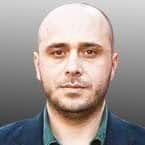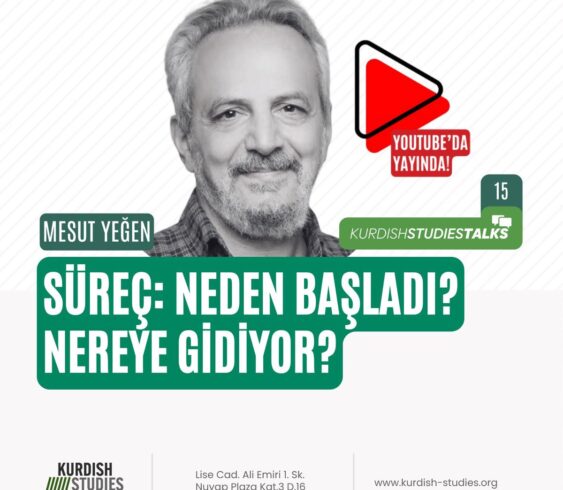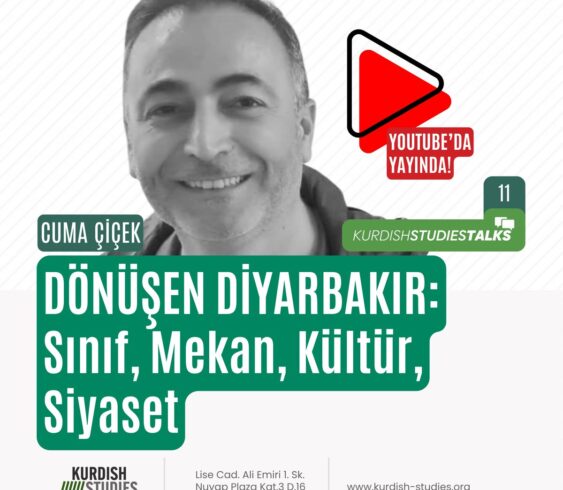2023 Kurdish Barometer: As Türkiye became ‘abnormal’, Kurds became ‘normal’ized

Yıldırağ OĞUR
I was in Diyarbakır over the weekend for the launch of the Kurdish Barometer research conducted by the Diyarbakır-based Kurdish Studies Center.
Conducted through face-to-face interviews with 1,492 participants across 20 provinces, this sociological field study aims to track societal values and political tendencies over time, similar to other barometer surveys worldwide.
The Kurdish Studies Center is a think tank established to fulfill a long-overdue yet highly valuable mission: to produce reliable data on Kurds—both in Türkiye and abroad—about whom so much has been said, often without their own voices being heard.
The presence of names such as Reha Ruhavioğlu, who leads the center, Cihan Ülsen and Emine Uçak from the management team, and Mesut Yeğen and Ulaş Tol, who conducted the research, already speaks volumes about the quality and credibility of the study.
The findings of the study speak volumes—especially to those in power in Ankara and the newly renamed HDP leadership—if they are willing to listen and see.
One of the most striking findings of the research is that 18 out of every 100 people no longer live in the city where they were born.
In other words, this data suggests that internal migration among Kurds within Türkiye has largely come to an end. The new generation of Kurds now forms a settled community living in the cities where they were born. This settled lifestyle brings with it wealth, comfort, and conservatism—though not necessarily in a religious sense. Sudden radical ideas that demand sacrifice do not easily find acceptance in such a settled society.
The study itself also supports this.
According to the survey, Kurds identify themselves as ‘Muslim’ (47%), ‘freedom-loving’ (33%), and ‘Religious’ (19.3%). These three are followed by 12% who identify as nationalist, 12% as conservative, and 12% as socialist.
Here, ‘freedom-loving’ does not mean liberal in the usual sense; it also includes those known as ‘patriots,’ such as the PKK and others who share similar views.
No surprises so far. Apart from the political and intellectual elites, ‘patriotic’ Kurds are also religious. A study by Rawest found that the rates of performing the five daily prayers among AK Party and HDP voters were very similar.
However, the most striking finding in the study is that 8.2% of Kurds identify themselves as social democrats, and 7% as Kemalists.
These two figures indicate that Kurds are becoming more integrated into Türkiye and beginning to resemble the country’s social norms.
These figures, which are higher than the 5% who identify as Islamists, are three times more common among the youth compared to the middle-aged and older generations.
There is also an increasing educational gap between Kurdish youth and their parents, which further widens the generational divide
One of the trends that increases as age decreases is nationalism. Among Kurdish youth, nationalism is higher compared to their elders.
However, these rates are similar to the trends of nationalism among Turks as well. In other words, nationalism is increasing among the youth in both Turkish and Kurdish populations at comparable levels.
In other words, the new generation of Kurds is both more integrated into Türkiye and more Kurdish.
Integration does not erase Kurdish identity.
Kurds embrace their Kurdish identity. The rate of embracing Kurdish identity is 67.4%.
Half of Kurds see themselves as strongly identifying as Kurdish. 14% see themselves as weakly identifying as Kurdish, and 13% express that they are not proud to be Kurdish.
The place where Kurdish identity emerges and is preserved is the Kurdish language.
30% of Kurds speak Kurdish fluently, and 31% speak it at an intermediate level. For 39% of them, the language is virtually absent from their daily lives.
As these figures indicate, the demand for mother tongue education—which is the best way to preserve Kurdish, a language sending out danger signals—holds an important place in Kurdish identity. While demands for an independent state, autonomy, or federation remain invisible, the demand for education in the mother tongue is at its peak.
As these figures show, the demand for mother-tongue education—seen as the most effective way to protect Kurdish, a language sounding the alarm—is a significant part of Kurdish identity. While calls for an independent state, autonomy, or federation remain marginal, the demand for education in Kurdish stands at the forefront.
Interestingly, however, this demand is advocated through rational and moderate solutions. Only 9.1% support the idea that education should be provided exclusively in Kurdish.
44.1% believe that education should be bilingual, in both Turkish and Kurdish.
The combined percentage of those who believe that the language of instruction should be Turkish—with Kurdish taught separately in schools—and those who think it should be Turkish only is 46.2%.
Among young people, interest in cultural products in Kurdish has increased significantly.
Kurdish music ranks among the top genres listened to by Kurdish youth, with a particularly strong interest in Kurdish rap and Kurdish pop.
One of the main differences that may now distinguish Kurdish youth from their Turkish peers is their taste in music.
58% of Kurds say they have experienced discrimination because of their Kurdish identity, while 42% say they have not. The sense of discrimination is stronger among those with a more pronounced Kurdish identity. Meanwhile, 42% say they do not feel a sense of belonging to Türkiye, 28% say they do, and 30% say they are undecided.
“Only 25% believe they are treated equally with Turks by the state. Nearly half think they are not, while 15.2% are undecided.
However, according to the survey, 40% of Kurds responded ‘I don’t know’ or ‘I have no opinion’ when asked about the issues facing Kurds in Iraq, and 39% gave the same response regarding the Kurds in Syria.
In other words, attention is focused on Türkiye. When asked which TV channel they watch news on the most, FOX leads by a wide margin, followed by those who say they do not watch news on TV, and then A Haber viewers.
The proportion of those who say they watch channels like Sterk, affiliated with the PKK, is 6%.
All these figures reveal a simple truth: Kurds have begun to live according to Türkiye’s social norms.
Internal migration has now ended; Kurds are a settled people, and the conservatism and prosperity that come with this settled lifestyle hinder the development of radical ideas.
Demands for Kurdish mother tongue education are also not very radical.
Kurds are not very engaged with the Kurds in Iraq and Syria or their issues.
Selahattin Demirtaş is the most popular politician—at a level twice that of all others combined.
Violence and demands for statehood have largely fallen off the agenda.
These figures may also be interpreted as signaling an emotional disconnect between the Kurdish community and the PKK.
Kurds have become firmly rooted in Türkiye; they are a large community living within the country’s mainstream norms and sharing similar demands. However, they seek to do so while remaining Kurdish—preserving their identity and keeping the Kurdish language alive.
Let’s see if Turkey can normalize, reach the maturity to address these reasonable demands, and finally resolve this issue. Will it learn a lesson from the emotional gap that has opened between the PKK—and so-called Kurdish politics—and the Kurds they claim to fight for?
https://www.karar.com/yazarlar/yildiray-ogur/2023-kurt-barometresi-turkiye-anormallesirken-kurtler-normallesti-1597885

